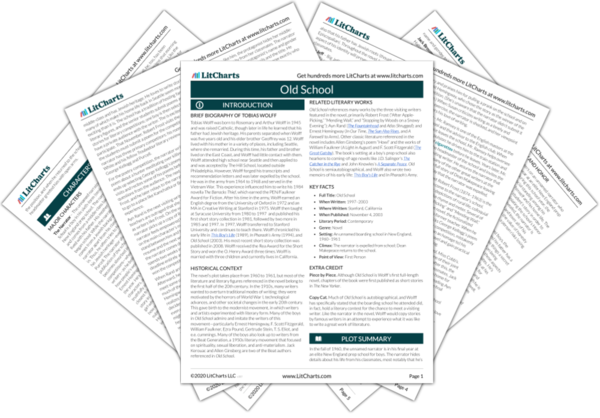The description of the narrator here suggests that he is going to try to use the failure to learn and grow. Taking a forward-facing seat implies that he is looking toward the future rather than dwelling on the past, and returning to
In Our Time hints at his continued admiration of Hemingway and connects to Hemingway’s earlier advice to go out and know more. Lastly, the cigarettes and the smoking car show how the narrator has grown up in such a short amount of time. No longer does he have to hide the cigarettes like the other students; he has fully left the world of his school and moved into the world of adulthood, though this shift was spurred by a painful learning experience.
